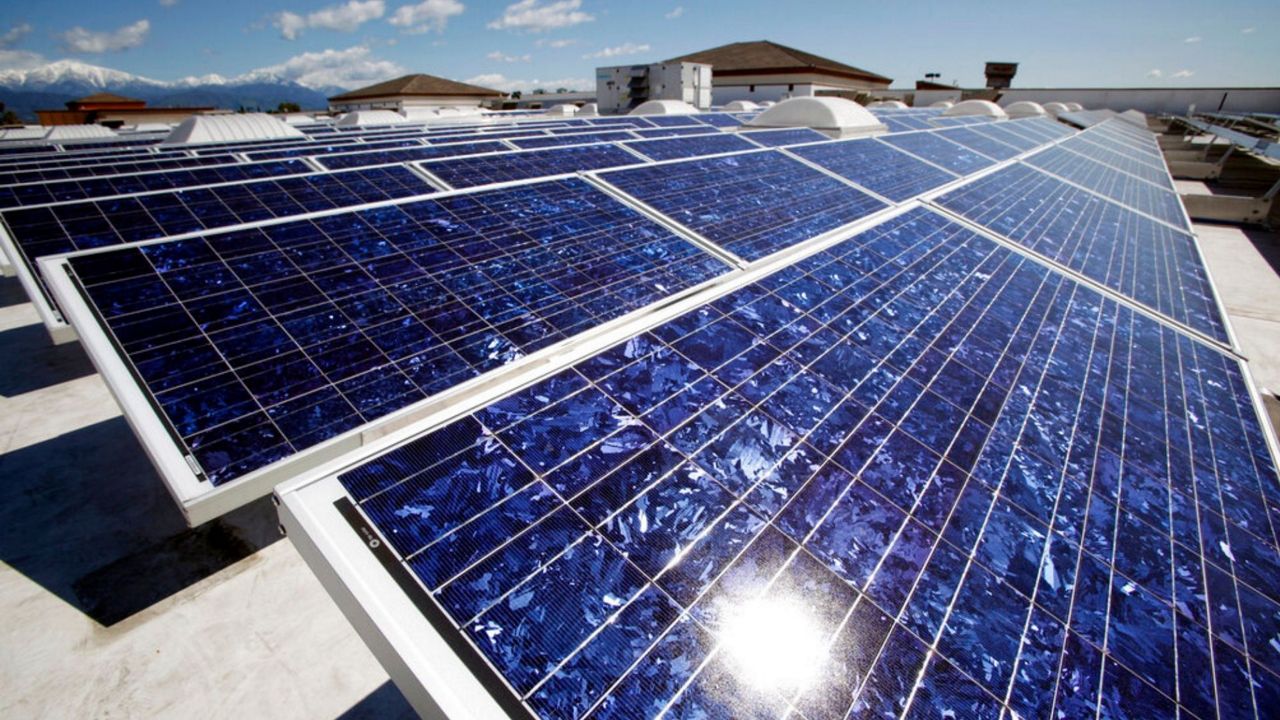COLUMBUS, Ohio — Global climate issues have come to the forefront in recent years, causing conversations around renewable energy and sustainability. Indianola Informal K-8 in Columbus has taken it one step farther than conversations and brought in its own solar panel.
The Green Machine is a solar panel system that generates electricity off of the sun. The renewable energy source was created by the Shared Power Network, a nonprofit created to bring energy education to the youth.
“Working with them to kind of better familiarize them with solar power to get them examples in the classroom,” said Jake Kuss, the executive director of the Shared Power Network. “I think it is a great way so in the future, we don’t have any misinformation or lack of knowledge.”
The energy can be used directly to power an object or stored in a battery. The Shared Power Network received a grant of over $200,000 from Interstate Gas Supply. The nonprofit has used the money to provide 40 Green Machines for 40 different schools around central Ohio.
“It's important to have teacher support and make sure they know how to use these systems," said Kuss. “We never want to drop them off and say 'good luck.' It's something that’s a continual relationship.”
Jared Laughbaum is one of the teachers that works closely with the Shared Power Network. He translates technology into tangible lesson plans that can be applied throughout elementary and middle school.
Lessons can spark debate among students and they've found that solar energy can be more cost-efficient in addition to it being a sustainable energy source. Solar panel prices have dropped more than 80 percent in the past 10 years, and can be cheaper than an electric bill over time. These kinds of conversations allow Laughbaum to mold educated citizens.
“The Green Machine allows us to have conversations about the environment, about global warming as we look at it from the perspective of fossil fuels and energy use and consumption and kind of where we need to go in the future,” said Laughbaum.
Elliot Rush is a student in Laughbaum’s class. He has used the Green Machine to charge his laptop and phone and has had the opportunity to see how easy renewable energy can be first-hand. He said seeing the green machine in action has changed how he thinks about energy. He now hopes to become an environmental historian to study the impact the environment has on our lives.
“Environmental issues are definitely something that we’re going to have to deal with when we get older," said Rush. “Having something like this really shows what we can do, and how we can charge our phones and computers on it. It just shows how much solar power could really help our future.”
IGS has awarded over $1.2 million to nonprofits providing education on sustainable energy. The other two nonprofits that received funding were the Mid-Ohio Food Collective and the Girl Scouts Council of Ohio.



